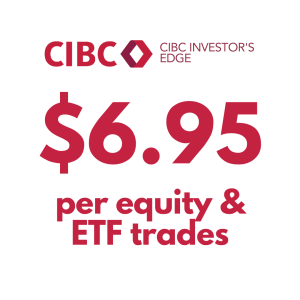
There are so many investment options available in our complex financial landscape. It may be hard to choose how to invest your money. There are stocks, ETFs, real estate, bonds, guaranteed investment certificates (GICs) and, of course, mutual funds, among many others. If you have ever found yourself asking, what are mutual funds? We will cover the basics here from the costs you can expect to the pros and cons of this investment. Continue reading to learn more about mutual funds!

Table of contents
- What is a mutual fund in simple terms?
- What are the pros and cons of mutual funds?
- What are examples of mutual funds?
- What are distributions in a mutual fund?
- What are mutual fund expense ratios?
- How do you make money from a mutual fund?
- How do you cash out a mutual fund?
- Is it smart to invest in mutual funds?
What is a mutual fund in simple terms?
In simple terms, a mutual fund is an investment portfolio managed by a professional. Instead of buying specific assets, when you invest in a mutual fund you buy into a portion of the fund itself. The mutual fund then builds its portfolio based on a specific investment or diversification strategy. It can include stocks, bonds, and/or other investments. Investment strategies and portfolio composition depend on the goals of the fund. Possible goals could be to track a particular index or invest in a certain sector, such as healthcare or tech. The name of a mutual fund must indicate at least 80% of what a mutual fund will be investing in. Keep reading to learn more about what mutual funds are.
Related Reading: Best RRSP Mutual Funds in Canada
CIBC Investor’s Line Offer
Up to $6.95 per online stock or ETF trade. Plus, there’s no minimum account balance.
What are the pros and cons of mutual funds?
Like any investment, there are pros and cons to investing in mutual funds. Below are details of the advantages and disadvantages of this investment choice.
What are advantages of mutual funds?
There are many reasons that mutual funds are popular. They are often the largest investment for employer-supported investment plans. Here are some more pros:
- Diversification: Mutual funds instantly allow access to a diversified investment portfolio.
- Invests in different industries and sizes of companies.
- Reduces the risk of investing in a single stock, bond or other sole investment.
- Cheaper than buying individual investments.
- Simple access, purchase and sale:
- Available for purchase and sale on major exchanges.
- Sometimes the only way to invest in certain securities.
- Power in numbers:
- Pool money with other investors to achieve greater purchasing power.
- Avoid fees associated with buying single investments.
- Buying and selling occur in large volumes.
- Reduced transaction fees.
- Mutual funds have larger positions in assets.
- Professionally managed:
- Managed by knowledgeable and professional investors.
- Monitored in real-time.
- Low entry cost for highly serviced funds.
- Wide variety of selection:
- Mutual funds have different goals and investment strategies.
- You are open to choosing a fund based on your respective goals.
- Exposure to a wider range of commodities, foreign assets, and real estate.
- Exposure to investments otherwise out of reach.
- Accountability: Highly regulated industry.
CIBC Investor’s Line Offer
Up to $6.95 per online stock or ETF trade. Plus, there’s no minimum account balance.
What are disadvantages of mutual funds?
- No guarantees:
- Risk of mutual funds depreciating over time.
- Mutual funds experience fluctuations just like stocks and other investments.
- Reduced returns:
- As per regulations, a large percentage of a mutual fund must be held in cash. This allows for potential withdrawals.
- Cash earns no return from dividends and other avenues.
- Reduced earnings from funds that cannot be invested.
- High costs:
- Mutual funds can have high fees for professional management.
- Fees reduce overall money going to investors.
- Fees charged regardless of fund performance.
- Some funds have higher fees than others.
- “Diworsification“:
- This occurs when diversification in companies results in too much investment in similar companies.
- Related companies can be affected in the same way by market changes. Thereby increasing risk, by wrongly investing in the same type of companies.
- Dilution:
- A mutual fund can grow too quickly.
- Too much money invested in a fund at once.
- Professional managers cannot invest the money well enough and quick enough.
- End-of-day trading only:
- The price of mutual funds only fluctuates at the end of the day.
- Stocks trade at highs and lows throughout the day. This allows for day trading, which isn’t realistic for mutual funds.
- Taxes: Depending on how the mutual fund is managed, each sale can trigger taxes owed.
- Evaluating funds:
- Less available information than for specific stocks.
- Full mutual fund Investment composition can be hard to determine.
- Comparing different funds can be challenging, especially for the new investor.
Related Reading: Top 5 TFSA Mutual Funds in Canada
What are examples of mutual funds?
Here is a list of the Top 10 Mutual Fund Companies in Canada. Each company will have a variety of mutual funds to offer interested investors. Below is a list of specific mutual funds, as an example of what’s available on the market:
- CI Canadian Dividend Fund Series F
- Mackenzie Bluewater Canadian Balance Fund Series F
- AGF Global Select Series F
- Blue Bay Emerging Markets Corporate Bond Fund
- Mawer Global Equity Fund
Related Reading: 10 Best Mutual Funds Canada
CIBC Investor’s Line Offer
Up to $6.95 per online stock or ETF trade. Plus, there’s no minimum account balance.
What are distributions in a mutual fund?
Distributions, when applied to mutual funds, are the way income is shared or given back to investors. Over a year through capital gains and dividends, mutual funds earn money. Mutual fund managers are responsible for distributing this money to investors, as well as reporting on profits and such distributions. They must also attempt to ensure the continued growth of the fund. This money can be distributed at different periods throughout the year. Once the money is distributed, a mutual funds net asset value declines. This lowers the overall cost to invest in a mutual fund once earnings have been distributed. The cycle continues, and mutual funds increase in value until earnings are again distributed.
What are mutual fund expense ratios?
The mutual fund’s expense ratio is the cost to operate a mutual fund. Mutual funds employ professional investors, administrators, marketers, and fund distributors. These are just some of the costs associated with mutual funds.
With operating costs associated with mutual funds, the cost is forwarded to investors. An expense ratio helps you understand how much of your money would be going to the operations of a mutual fund. Most often expense ratio is shown as a percentage of the mutual fund’s net assets. It is not commonly shown as a dollar amount.
The lower the percentage the more efficient or lower the costs in fees a mutual fund is incurring. The average expense ratio in 2022 for mutual funds was 0.47% which works out to about $47 for every $10,000 invested, for instance. Mutual funds can have significantly lower or higher expense ratios. This is something to be mindful of.
What are mutual fund fees?
There are two types of mutual fund fees:
- Annual fund operating expenses: Covering operating costs, they are normally expressed as an expense ratio.
- Shareholder fees: These are one-time fees associated with the sale and purchase of mutual fund shares.
Related Reading: Tax Efficient Mutual Funds in Canada
How do you make money from a mutual fund?
Mutual funds earn money through dividends and other investment income through the assets they purchase and hold. They can earn money from capital gains from the sale of investments as well. This money should be distributed to investors at regular periods. Below are more details:
- Dividends:
- Money is paid out to investors for the ownership of particular stocks.
- Considered an investor’s share of profits for whatever period the dividend is paid out in.
- Most companies that offer dividends release them quarterly or semi-annually. However, it could also be monthly or annually.
- Mutual funds receive dividends for the stocks the fund has invested in.
- The dividend then trickles down to the investors of a particular mutual fund.
- Capital gains from the sale of investments:
- In theory, stock and investment values go up over time.
- Profit is made when stocks are sold for higher prices than they were purchased for.
- Mutual funds buy and sell investments.
- When sold at highs the difference in purchase vs sale prices is capital gains. There is potential for a loss though too.
- Upon sale, capital gains represent revenue or income for a mutual fund.
Related Reading: What Is The Stock Market And How Does It Work? A Beginner’s Guide
CIBC Investor’s Line Offer
Up to $6.95 per online stock or ETF trade. Plus, there’s no minimum account balance.
How do you cash out a mutual fund?
One of the biggest draws to mutual funds is that they are considered liquid assets. Meaning they can be cashed out at anytime, quickly, and easily. This is why mutual funds must have a certain amount of cash on hand — to support withdrawals at anytime.
There are redemption and exchange fees associated with cashing out of mutual funds. Each mutual fund has different fees. You must ensure you understand the cost of a particular mutual fund before buying or selling. Cashing out mutual funds is as simple as buying them. You can do it through the fund company or through your broker. There may be a fee to cash out the mutual fund, but otherwise it’s quite easy to sell your investment.
Is it smart to invest in mutual funds?
Mutual Funds are a part of many investment portfolios. Like stocks and other investments, there is no guarantee with mutual funds. But with that said, there are significant benefits to going with mutual funds. They offer access to a wider range of investments from around the world. They offer professional management services. On the other hand, drawbacks include heavy fees and a lack of personal control over investments.
Speaking to a financial advisor and getting more insights on mutual funds may be a wise choice. Mutual funds can be a great investment or an excellent addition to an existing portfolio. They carry less personal management stress, as professionals take care of that.
Whether or not mutual funds are the right investment for you depends on many factors. Personal finances, risk aversion, and available funds to invest. Regardless of what is decided, mutual funds have proven successful for many people. Mutual funds remain a key investment in the modern age. Explore mutual funds further and consider them for future investment today!
Read More: How to Invest in Mutual Funds in Canada

